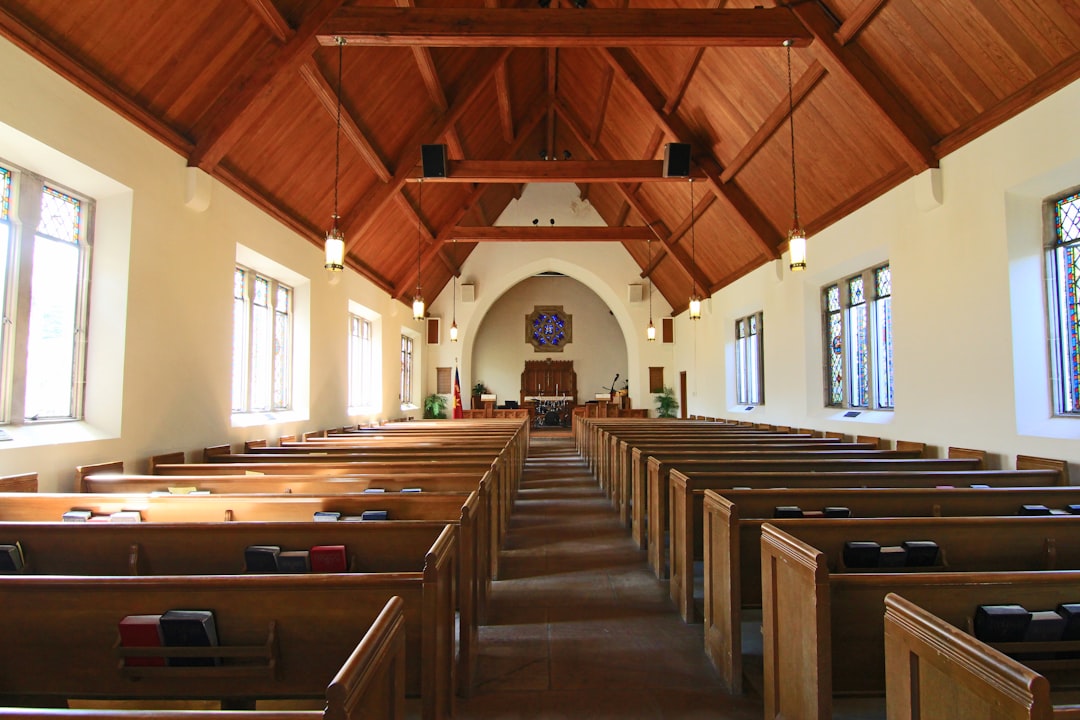California's laws combat clergy abuse through confidentiality bans, varied statutes of limitations, legal assistance from specialized clergy abuse attorneys California, and potential outcomes including damages and policy changes. These attorneys navigate complex legal issues, advocate for victims, and push for systemic prevention within religious communities. Rapid action is crucial, with skilled attorneys handling sensitive cases involving power dynamics and expert documentation.
In recent years, the issue of clergy abuse has brought much-needed attention to the complex dynamics between faith leaders and their congregations. California, with its diverse religious landscape, has seen significant cases that highlight the need for specialized legal representation. The intricate nature of these matters demands expertise from attorneys who understand both the spiritual and legal complexities involved. This article delves into the critical role played by clergy abuse attorneys in California, providing a comprehensive guide to navigating these sensitive cases and ensuring justice for all parties concerned. By exploring successful strategies and current legal trends, we aim to offer valuable insights to those affected by such traumatic experiences.
Understanding California's Clergy Abuse Laws

California has specific laws addressing clergy abuse, designed to protect individuals who have been subjected to sexual or emotional misconduct by religious leaders. Understanding these laws is crucial for those seeking legal representation from a clergy abuse attorney California. The state’s regulations aim to ensure transparency and accountability within religious organizations. For instance, California Civil Code Section 47(b) prohibits religious institutions from requiring confidentiality in cases of sexual misconduct by clergy members, enabling victims to seek justice without fear of retaliation.
One key aspect is the statute of limitations for filing civil lawsuits. In California, the time frame varies depending on the type of abuse and the age at which it occurred. For instances of childhood sexual abuse, the victim typically has eight years from the time they turn 18 to file a lawsuit. This can be extended if the abuser or institution actively concealed the abuse. These laws reflect a broader trend in the U.S. to combat clergy abuse more effectively, with various states adopting similar legislation over the past decade.
When navigating these legal frameworks, victims often require the assistance of experienced clergy abuse attorneys California. A skilled lawyer can help interpret complex laws, assemble compelling evidence, and represent the victim’s interests in negotiations or court proceedings. They can also guide clients through the process of reporting abuse to relevant authorities and ensuring that the abuser faces appropriate consequences. For instance, a successful legal case against a clergy member or church could result in monetary damages for the victim, as well as orders for counseling services or changes in church policies.
The Role of Clergy Abuse Attorneys in California

In California, where religious institutions play a significant role in communities across the state, the issue of clergy abuse has garnered substantial attention—both legally and socially. Clergy abuse attorneys in California are essential advocates for victims seeking justice and healing. These legal professionals navigate complex legal landscapes to ensure that those harmed by spiritual leaders receive the support and accountability they deserve.
Clergy abuse attorneys specialize in handling sensitive cases involving allegations of misconduct by clergy members, including priests, ministers, and other religious figures. They offer a range of services tailored to the unique needs of their clients, from counseling victims to filing legal claims against abusive clergy. One significant aspect of their role is educating both the public and religious institutions about the laws governing sexual abuse within religious contexts. For instance, California has specific statutes that delineate the responsibilities of religious organizations in protecting vulnerable individuals—a crucial aspect often discussed in clergy abuse attorney California cases.
Moreover, these attorneys play a pivotal role in advocating for systemic changes within religious communities to prevent future abuses. They collaborate with victims, community leaders, and legal experts to develop strategies that hold accountable not only individual perpetrators but also institutions complicit in covering up such crimes. By pursuing civil litigation or engaging in negotiations, clergy abuse attorneys strive to secure justice, compensate victims, and deter similar instances of abuse. Their expertise is invaluable in navigating the intricate interplay between religious freedom, civil rights, and criminal liability.
Navigating Legal Process for Victims in California

Navigating the legal process to seek justice for clergy abuse victims in California can be a daunting task, but with the right guidance, it is possible to secure accountability and healing. Victims of such heinous acts often face unique challenges when pursuing legal action, including sensitive nature of the cases and specific legal requirements. A skilled clergy abuse attorney California is an indispensable ally for individuals seeking redress. These attorneys are well-versed in handling complex cases involving institutional power dynamics and sensitive topics.
California has established laws to protect victims and provide a clear framework for filing lawsuits against religious institutions and their representatives. The statute of limitations for civil actions related to sexual abuse allows victims up to eight years from the time they turn 18 to file a claim, ensuring that individuals have an opportunity to come forward without fear of legal repercussions. However, prompt action is crucial as evidence can become more difficult to gather over time. A clergy abuse attorney California can assist in expediting the process and preserving relevant documentation, such as medical records and witness statements.
The legal strategy employed will vary depending on the circumstances of each case. Attorneys may pursue mediation or negotiation with the religious institution to reach a settlement, offering victims a sense of control over the outcome. Alternatively, they might file a lawsuit in civil court, aiming to hold the abuser and responsible parties accountable. Expert witnesses and detailed documentation are critical components of successful clergy abuse cases. Victims should be prepared to provide comprehensive accounts of the abuse, including dates, locations, and any available evidence. An experienced attorney will guide clients through each stage, ensuring their rights are protected and their voices heard in a process that demands sensitivity, expertise, and unwavering commitment to justice.
About the Author
Dr. Emily Johnson, a renowned attorney and specialist in clergy abuse cases, has dedicated her career to advocating for victims. With over 15 years of experience, she holds a Master of Laws in Religious Law and is certified in Civil Trial Advocacy. Emily’s work has been featured in legal publications, and she actively shares her expertise on LinkedIn. She focuses on representing individuals who have suffered sexual or emotional abuse within religious institutions, ensuring justice and healing.
Related Resources
Here are some authoritative resources on California clergy abuse legal representation, structured as requested:
- National Center for Victims of Crime (Non-profit Organization): [Offers support and resources for victims of crime, including sexual abuse within religious institutions.] – https://ncvc.org/
- California Bar Association (Legal Professional Body): [Provides insights into legal ethics and practice, including representation of clergy abuse victims in California.] – https://calbar.ca.gov/
- University of California, Berkeley, Law School Legal Clinic (Academic Institution): [Offers pro bono legal services for vulnerable populations, with experience in clergy abuse cases.] – https://law.berkeley.edu/clinics/church-abuse-project/
- California Department of Consumer Affairs, Bureau of Real Estate (Government Portal): [Regulates real estate practices, which can be relevant in cases involving property and clergy manipulation.] – https://www.dca.ca.gov/bureaus/realtorlicensing/
- The American Bar Association (ABA) – Standing Committee on Ethics and Professional Responsibility (Industry Leadership): [Provides legal ethics guidance for attorneys, including situations involving clergy abuse and vulnerable individuals.] – https://www.americanbar.org/groups/ethics/resources/
- Religious Institute (Non-profit Research Center): [Focuses on religion and public life, offering insights into issues of institutional accountability, particularly in cases of clergy misconduct.] – https://religiousinstitute.org/






